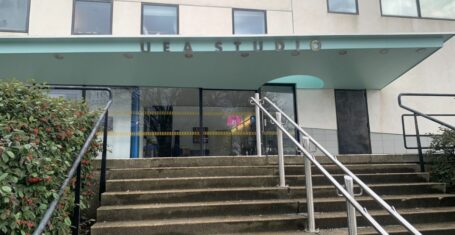
Why UEA students should boycott the National Student Survey
There’s a reason they’re so keen for you to fill it out
According to its website, the National Student Survey is ‘an influential source of public information about higher education [that] gives students a powerful collective voice to help shape the future of their course and their institution for current and prospective students.’
On top of this, there's the promise of actually being listened to (for once), and many universities are offering prizes for participation; the University of East Anglia is offering £100 in vouchers for three lucky students, whilst Manchester will donate £1 to a local charity for every participant.
Altogether, this seems like a pretty neat deal – so why are SUs around the country voting to boycott it?

It all comes down to a government strategy launched in 2017 called the TEF (Teaching Excellence and Student Outcomes Framework) which seeks to marketise higher education and drive competition between universities. It gathers data on university performance, in part, through the NSS, though that fact is hardly addressed on the survey’s About Us page.
The strategy is a highly controversial one, as despite tuition fees being frozen at £9250, the Tories have already stated intent to use TEF rankings to allow different universities to set their own fees.
Why is this a bad thing? After all, some will argue that it’s fair for universities to set their own fees and have more control over their finances – and even if the fees do go up, the government will surely have to subsidise it. Besides, the TEF’s goal is to make higher education more competitive, which should bring out the best in universities. But will allowing universities to choose their own fees actually drive healthy competition, or stifle it.
By differentiating tuition fees, higher ranked universities will have access to greater funding that isn’t accessible to the rest. This funding gap will make the supposed lower ranked universities less able to compete, unless they cut their least profitable ventures such as undersubscribed or expensive to run courses, leading to staff redundancies and sacrificing the diversity of courses provided in pursuit of profitability.

The survey can't measure the impact of factors independent of the university on the student, which already reduces how definitive its results may actually be. Additionally, the chance of a financial penalty for poor performance in the survey may cause universities to divert their funds to typically more popular courses, driving them to act less like educators and more as businesses.
At its core, the NSS is being boycotted because of its ties to the raising of tuition fees. It gives students a ‘powerful collective voice,’ then uses that voice to justify doing the one thing it's safe to assume the vast majority of students oppose. This misrepresentation of student opinion means that by taking part in the survey, you may be helping to shape a future that is more hostile to current and prospective students – regardless of if you wanted to or not, and things will stay this way unless the ties between the NSS and raised fees are cut.
If you’re eligible to take part in this survey, but all things considered think that you would rather not, you're in luck – this is a rare instance of activism that requires less effort than what is protested against. Simply block their email ([email protected]) and wait for it all to blow over. Even if you have already taken part but still wish to take part in the boycott, send an email asking to withdraw (alongside your university and student ID) to [email protected].
Finally, make sure to spread the word – only twelve universities successfully boycotted the survey last year by having less than 50% of students complete it. It would be a shame to waste this opportunity to show sustained opposition to the raising of tuition fees.









































